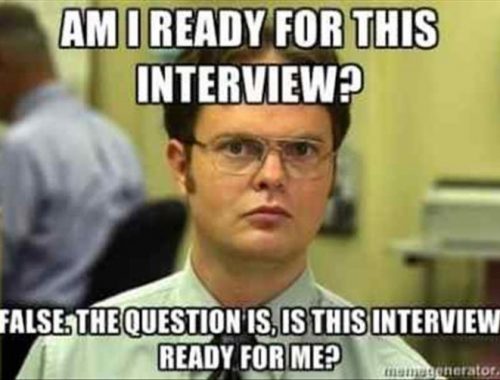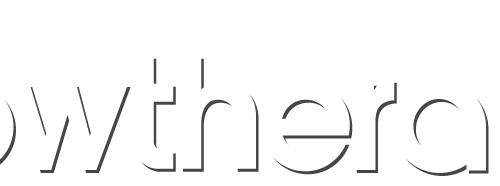Talking Against Time
There is no stress that can quite compare to that of a job interview. Are you able to talk against the clock in a way that proves to the person opposite the desk, that there is no need to even see anyone else waiting on the other side of the door? It is a conversation of strategy, sell yourself, but do so within the timeframe, and in such a way you don’t come across as entitled. The entire situation is like walking a tightrope, but with a job waiting at the other end it’s one many should learn to walk well.
In her discussion of using journals in learning through reflection, Moon (1999a, pp. 188–194) discusses one of the values of reflective journaling is ‘to enable learners to understand their own learning process’. This is important in the interview process to continually improve our own skills, and acknowledge areas of weakness. I will use Boud’s model of reflection to describe my experience of the simulated interviews. Reflective practices are important for our understanding as unconscious processes do not allow us to make active and aware decisions about our learning. In this model of reflection, the main focus of experiences, reflection process, and outcomes allows us to consider it as if we were an external person who observes and is neutral with opinions and concepts without fear of criticism.

Figure 1 The Boud et al. (1985) model of reflection. | Download Scientific Diagram (researchgate.net)
Using this model, I first highlight my own experiences through my behaviour, ideas, and feelings. I volunteered to be the first candidate for interview as I know feelings of anxiety and stress are more likely to affect me the longer I had to wait. However, the con of going first is that you have less time to prepare yourself before going in. I was confident in my preparation for this interview, I knew the key requirements and the points I wanted to discuss based on instrumental teaching. Unfortunately, my downfall was the very first question, ‘Tell us about yourself’. In a ‘deer in headlights’ moment, I gave the briefest of responses and moved on far too fast.
Immediately afterwards I knew I should have expanded further, but my slight moment of panic had completely thrown me off. I was able to take a few calming breaths and refocus myself for the following questions. My confidence lifted as I discussed the job role, particularly around the Kodaly teaching methods which was a specific question I had prepared for in advance. I felt myself relaxing into a more natural conversation, and was able to make eye contact with every member of the panel. After a horror beginning, I was pleased with what I managed to achieve by the end, and felt I had come across knowledgeable and capable of performing the job role effectively.

Looking back more critically at my interview has allowed me to find places I can improve. Boud’s model advises us to return to the experience so we can re-evaluate it. I’m aware now that my nerves may get the better of me at the beginning, so I should combat this by not overthinking as I walk in, or letting any anxious tendencies control the first part of the conversation. I’m pleased I was able to respond to the initial panic in a positive way as I didn’t let it dominate the entire interview, but I could have come across more confident earlier in the conversation. Another part of my feedback was using filler words. It is something I had to actively remember not to do as I have a tendency to pause conversations with ‘like’ or ‘emm’. For the most part, I was able to avoid these, but it is something I would like to remove entirely. This is similar to other anxious tendencies I may let direct attention from the conversation. It was noted I should avoid fidgeting with the chair or my bracelet, which is a habit I do without realising. It’s something I’ll remember for future scenarios to be more aware of, and will hopefully be able to avoid. Coming out of the interview, I was aware that it wasn’t perfect and that I should have done much better with the first question. But my biggest positive is that I didn’t let it de-rail the entire interview, and was able to recover and rely on the preparation I had done in advance.
Before the simulated interviews, we had been introduced to the STAR interview technique which helps you answer their question while highlighting your key points. Reflecting on my interview, I feel I used this technique effectively and that it helped structure my answers, specifically about challenging lesson plans. An improvement with this area is the emphasis on each point. 60% should be the ‘action’ part of the method, and I could have gone into more detail for this aspect.
The final part of Boud’s process are the outcomes. Acknowledging the change in behaviour and being able to address it in future. I can start being more aware of my filler words and fidgeting habits in general conversations, in the hope it will improve for future interviews. For next time, I’ll be more prepared for not just the job role, but questions directed at me in other contexts. I’m going to look into other methods of stress relief that I can try and implement just before the interview which will hopefully help improve the start of my conversations. Overall, the feedback I received from my peers was positive, and it was a good learning experience.
Bibliography
Boud, D., Keogh, R. and Walker, D., 2013. Promoting reflection in learning: A model. In Reflection: Turning experience into learning (pp. 18-40). Routledge. https://craftingjustice.files.wordpress.com/2017/04/david-boud-rosemary-keogh-david-walker-reflection_-turning-experience-into-learning-routledge-1985-pp-1-165.pdf
Boud, D., 2001. Using journal writing to enhance reflective practice. New directions for adult and continuing education, 2001(90), pp.9-18. https://scirp.org/reference/referencespapers.aspx?referenceid=1434294
Ospina Avendano, D. (2020). What is the Boud Reflection Model? Theory by Boud et al, 1985. [online] toolshero. Available at: https://www.toolshero.com/personal-development/boud-reflection-model/. Feiler, A.R., Powell, D.M. Behavioral Expression of Job Interview Anxiety. J Bus Psychol 31, 155–171 (2016). https://doi.org/10.1007/s10869-015-9403-z
Feiler, A.R., Powell, D.M. Behavioral Expression of Job Interview Anxiety. J Bus Psychol 31, 155–171 (2016). https://doi.org/10.1007/s10869-015-9403-z
INTERVIEW IMPROVEMENTS
STAR CANDIDATE
You May Also Like

Job Interviews: Selling Yourself For A Pay Cheque
24 February 2023
“Fake it ‘til you make it!”: Finding Success in a Simulated Interview
22 February 2023

